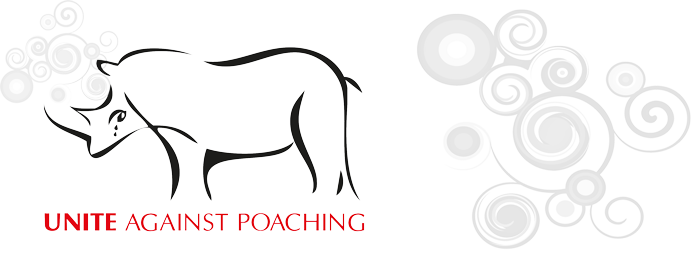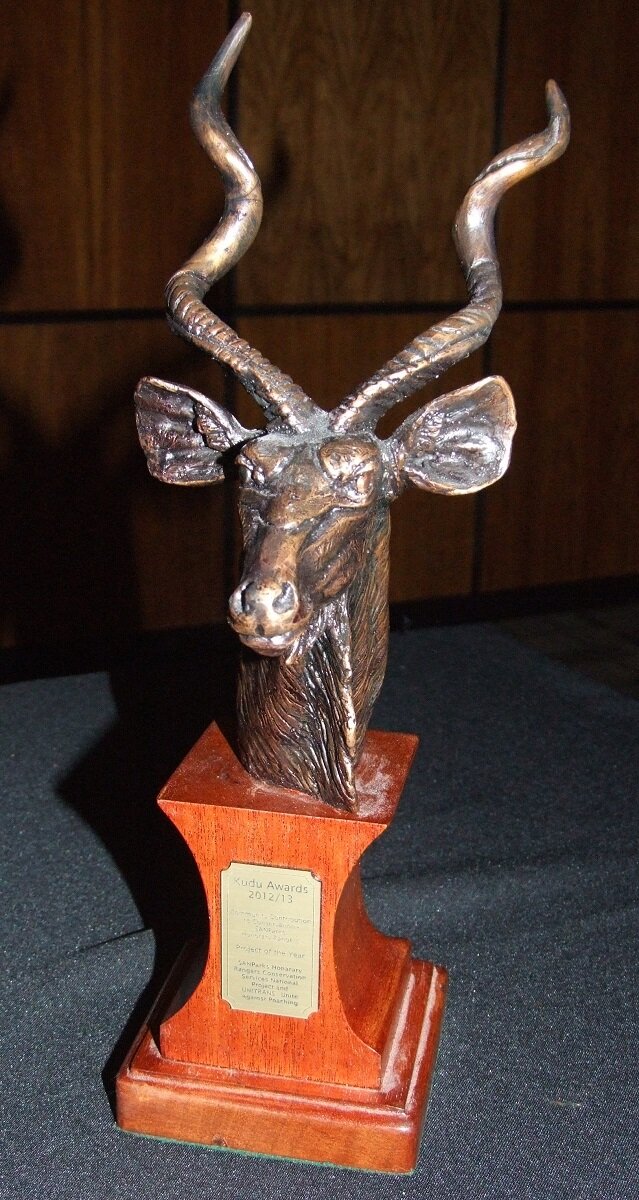Finale Win a new car every month for a year!
Sep 04 2014- Details
-
Its been an exciting 12months.
This is the last opportunity for our supportive customers to win a brand new car.
Make sure you are at your local Unitrans Volkswagen dealership to see if you are the lucky one.
Prayers to save our rhino
Sep 04 2014- Details
-
Last week , Unite against Poaching had the privilege of talking to a group of young people in Skukuza about the rhino poaching crisis facing us all. These primary school children were so enthusiastic and committed to doing all they can to help in the fight against Poaching. The meeting was hosted in the actual church in Skukuza staff village.
Their cheerful voices singing praise were an awe inspiring background to the image of a life size rhino standing at the altar in their church. The poignancy of the image that our rhinos may need divine intervention to survive did not escape us. Hearing these young voices singing and seeing their passion and dedication to this fight against poaching was a true inspiration
.

This fight against poaching and has been taken up by racial groups across the spectrum, encompassing the various religious convictions and social groups. We certainly do need to make our voices heard and remain vigilant to any suspicious activity. Together we can certainly make a difference.
This visit, to the centre of the poaching crisis, speaking to children whose very lives are affected by the poaching crisis every day, has certainly made me so much more determined to intensify efforts to make a difference wherever we can.
You too can make a difference; click on “Act Now” and join the fight against poaching
Deputy Minister of Police during Parliamentary Debate on Rhino Poaching
Sep 03 2014- Details
-
Deputy Minister of Police, Hon Makhotso Maggie Sotyu (MP), 02 Sep 2014
South Africa prides itself for being home to eight of the world’s official heritage sites, as determined by the UNESCO’s World Heritage Committee (Isimangaliso Wetland Park in KZN; Robben Island in WC; Cradle of Humankind in GP and NW; Ukhahlamba Drakensberg Park in KZN; Mapungubwe Cultural Landscape in LIM; Cape Floral Region in NC and WC; Vredefort Dome in FS and NW; and Richtersveld Cultural and Botanical Landscape in NC).
These eight landmarks are not sites for beauty only; they are inherently linked to our socio-economic development through tourism.
Should any of these natural and cultural sites and their related inhabitants and animals be threatened in anyway, our socio-economic security also gets destabilised.
And regrettably, we are here to debate one of the threats that, if not effectively and efficiently addressed, will see our national security damaged and our economy eroded.
Speaker, it is a fact that South Africa until 2010 at least, was viewed as the primary custodian of Africa’s white rhinos, with approximate of 93 percent (about a total of 18 790 white rhinos) representation in South Africa alone.
Sadly since then, there has been a dramatic decrease in this number due to the brutal killings of these animals by criminals for their horns.
The people who plan to kill animals for their body parts are nothing more than heinous criminals who have no regard for the importance of our ecosystem in its entirety, and our dependency on it to survive, and for the future of our children.
Probably, that is why we are gathered here to debate, discuss and deliberate on better ways to intervene to fight the scourge of these senseless killings on our wildlife.Speaker, yes there is a consistent growing concern to combat rhino killings and mutilation for their horns.
And as police, we received numerous lambasting comments, alleging that we are not doing enough to increase the arrest for quick prosecutions and stiffer sentencing.
But, as the Leadership of Police, I and the Minister of Police would be the first ones to say, the police have initiated a lot of breakthroughs to fight against rhino poaching and other similar attacks on our endangered species.Read more: Deputy Minister of Police during Parliamentary Debate on Rhino Poaching
Minister Edna Molewa’s remarks on rhino poaching debate
Sep 03 2014- Details
-
Parliament, Cape Town, 2 September 2014
Honourable members, since perhaps the dawn of time, the rhino, ubejane, tsukudu, renoster has been emblematic of Africa. Of us as a continent, and of us as a people.
This animal, with its magnificent features - remind us of our ancestral past, and our prehistoric origins, from another place in time. In this month of September, we celebrate our great heritage as South Africans and as Africans…and our human connection with nature.
The fight to save the rhino goes way beyond the protection of a species. It is inextricably tied to our South African heritage. There are those who would ask why, with all the challenges we face as a country to build a better life for all: do we place the conservation of animals at the center of national debate.
The answer is a simple one. It is because protection of our natural resources lies at the heart of what makes us South Africans: our love for this beautiful land. Which is why we will not be complacent as our national security is breached, and criminals decimate our wildlife, among the most abundant in the world.
South Africa has always been, and remains, the home of the rhino. Despite the onslaught of human encroachment over the centuries, and man’s often-cruel pursuit of these animals, they have endured. And here, in the southernmost tip of Africa, they are home. Eighty-two percent of Africa’s rhino can be found in South Africa. Ninety three percent of white rhino and 39% of black rhino are here.
Read more: Minister Edna Molewa’s remarks on rhino poaching debate
Unite against poaching
Sep 02 2014- Details
-
Amarokie the rhino was in the Kruger National Park on an educational visit and enchanted many visitors en route.
He spent some time at Skukuza Reception helping to raise awareness for Unite against Poaching.


As we left the Kruger Park this sign served to emphasise the challenge facing ourrhinos and the rangers who protect them.

More Articles...
- Fascinating factual interview with Maj Gen Jooste
- Wedding gifts for rhinos
- NOT ON MY WATCH - Molewa takes charge in fight for rhinos
- The life of a Game Ranger
- Press release outlines Govt rhino management strategy






 Mitec Solutions
Mitec Solutions